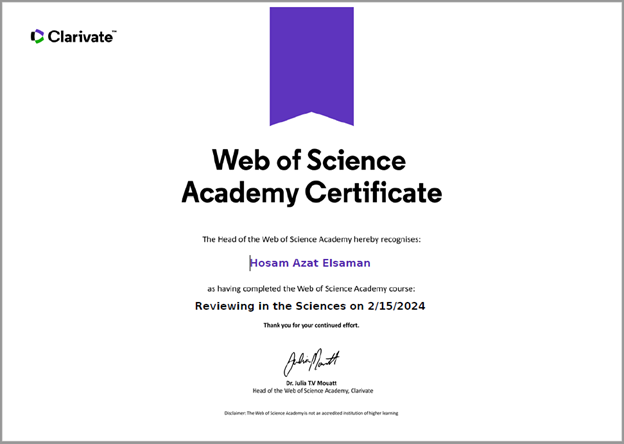Leadership Skills in the Digital Age: Implications for University Business Schools
DOI:
https://doi.org/10.15549/jeecar.v5i2.217Keywords:
Leadership skills, Curriculum design, Business schools, Digital era.Abstract
This exploratory paper focuses its discussion on the 21st century leadership skills graduates of university business schools need to have to be successful in the digital age. Common themes from the leadership literature are first identified. These are then compared with the requirements from: 1. accrediting agencies for university business schools, 2. national committees and councils, and 3. sponsoring foundation’s. Several common themes about the 21st century leadership skills for the digital age have emerged which have implications for curriculum review and development at universities. Last, questions are raised and suggestions are made for implementation of these common leadership themes in university curriculum content design.References
ACTE - Association for Career and Technical Education. (ACTE) (2010). What is Career Ready? Alexandra, VA:
Available: http://dpi.wi.gove/oea/pdf/crpaper.pdf
Ananiadou, K. and Claro, M. (2009). 21st century skills and competencies for new millennium
learners in OECD countries. Paris: Organization for Economic Cooperation and Development.
Available: http://www.oecd-ilibrary.org/education/21st-century-skills
Bath, D., Smith, C., Stein, S. & Swann, R. (2004). Beyond mapping and embedding graduate attributes: bringing together quality assurance and action learning to create a validated and living curriculum. Higher Education Research
& Development, 23(3), 313–328.
Binkley, M., Erstad, O., Herman, J., Raizen, S., Ripley, M., and Rumble, M. (2010). Defining 21st Century Skills. White Paper commissioned for the National Research Council. (2012). Education
Available on request from ATC21S: http://atc21s.org/index.php/resources/whitepapers/# item1.
Conley, D. T. (2007). Redefining College Readiness. Eugene, OR: Educational Policy Improvement
Center. (EPIC) Available: https://www.epiconline.org/files/pdf/RedefiningCollegeReadiness.
De La Harpe, B., Radloff, A., & Wyber, J. (2000). Quality and generic (professional) skills. Quality in Higher Education, 6(3), 231-243.
Emberg, S, & Benson, L. (2010). Integrating Professional skills into a Bachelor of commerce program: A case study. In Proceedings of 17th EDiNEB Conference (June 09-12(, London, United Kingdom.
Finegold, D., and Notabartolo, A.S. (2010). 21st Century Competencies and their Impact: An Interdisciplinary Literature Review. Paper commissioned for the NRC Project on Research on 21st Century Competencies: A Planning Process on Behalf of the Hewlett Foundation.
Available: http://www7.nationalacademies.org/bota/Finegold_Notabartolo_Impact_Paper.pdf.
Jackson, D. & Chapman, E. (2012). Non-technical competencies in undergraduate business degree programs: Australian and UK perspectives. Studies in Higher Education, 37(5), 541-567.
Jackson, D. & Chapman, E. (2012). Non-technical competencies in undergraduate business degree programs: Australian and UK perspectives. Studies in Higher Education, 37(5), 541–567.
National Research Council. (2012). Education for Life and Work: Developing Transferable Knowledge and Skills in the 21st Century. Committee on Defining Deeper Learning and 21st Century Skills, James W. Pellegrino and Margaret L. Hilton, Editors. Board on Testing and Assessment and Board on Science Education, Division of Behavioral and Social Sciences and Education. Washington, DC: The National Academies Press.
Robley, W., Whittle, S., & Murdoch-Eaton, D. (2005). Mapping generic skills curricula: Outcomes and discussion. Journal of further and Higher Education, 29(4), 321-330.
Salas, E., Bedwell, W.L., and Fiore, S.M. (2011). Developing the 21st Century (and Beyond)
Workforce: A Review of Interpersonal Skills and Measurement Strategies. Paper prepared for the NRC Workshop on Assessing 21st Century Skills.
Available: http://www7.nationalacademies.org/bota/21st_Century_Workshop_Salas_Fiore_Paper.pdf.
Sumsion, J. & Goodfellow, J. (2004). Identifying generic skills through curriculum mapping: a critical evaluation. Higher Education Research & Development, 23(3), 329–346.
Voogt, J., and Pareja Roblin, N. (2010). 21st Century Skills Discussion Paper. Report prepared for Kennisnet, University of Twente.
Downloads
Published
How to Cite
Issue
Section
License
The JEECAR journal allows the author(s) to hold the copyright and publishing rights of their own manuscript without restrictions.
This journal applies the Creative Attribution Common License to works we publish, and allows reuse and remixing of its content, in accordance with a CC-BY 4.0 license.
Authors are free to: Share — copy and redistribute the material in any medium or format and Adapt — remix, transform, and build upon the material for any purpose, even commercially.
Under the following terms: Attribution — You must give appropriate credit, provide a link to the license, and indicate if changes were made. You may do so in any reasonable manner, but not in any way that suggests the licensor endorses you or your use.
No additional restrictions — The author may not apply legal terms or technological measures that legally restrict others from doing anything the license permits.
The JEECAR Journal is committed to the editorial principles of all aspects of publication ethics and publication malpractice as assigned by the Committee on Public Ethics.












